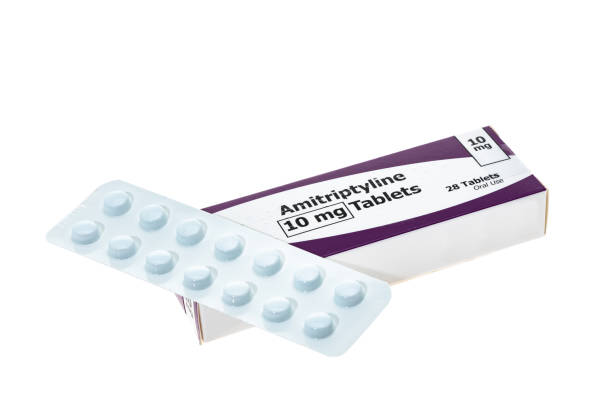Amitriptyline is a medication for treating depression. It belongs to the drug class called tricyclic antidepressants (TCAs), and it has a soothing effect. However, it is not available as a brand-name drug; it is only available as a generic drug. It works by increasing the amount of norepinephrine and serotonin in the brain; these hormones help to regulate mood. `
Dosage
Amitriptyline is available in different strengths, from 10 mg to 150 mg, and the typical starting dose for adults (18 to 64 years) is 75 mg per day. It may be increased if necessary, but the maximum dose is 150 mg per day in divided doses.
The dosage of this drug for children (12 to 17 years) is 10 mg 3 times and 20 mg before bedtime, making 50 mg per day. This drug is not recommended for children below 12 years of age.
For people older than 64, their kidneys do not work as well as they used to, so their bodies process drugs more slowly. Drugs stay in their bodies for much longer, and this also makes them more prone to side effects, so a doctor will prescribe lower doses and also consider their general health condition.
Side Effects of Amitriptyline
The common side effects of amitriptyline include:
- Nausea, vomiting, and stomach upset.
- Constipation or diarrhoea.
- Rash or itching.
- Swelling of the breast both in men and women.
- Mouth pain, black tongue, or unusual taste.
- Appetite or weight changes.
- Decreased sex drive, difficulty having an orgasm, or impotence.
- Urinating less than usual.
Some more serious side effects include
- Changes in behaviour such as anxiety, irritability, worsening depression, aggression and so on.
- Signs of blood clots such as weakness or numbness.
- Lightheadedness.
- Unusual thoughts.
- Pounding heartbeats.
- Chest pain that might spread to your jaw or shoulder.
- Fever, chills, mouth sores or sore throat.
- Seizures.
- Easy bruising or unusual bleeding.
- Confusion or hallucinations.
- Painful or difficult urination.
Precautions
Before taking this drug, tell your doctor if you have had a heart attack recently, if you have used any SSRI antidepressants recently, and if you have ever had any of the following conditions.
- Heart, kidney or liver disease.
- Seizures, heart attack or stroke.
- Bipolar disorder or schizophrenia.
- Glaucoma.
- Mental illness or psychosis.
- Diabetes.
- Problems with urination.
This medication has many side effects, and some people have suicidal thoughts when they first take it, so anyone using this drug must be observed closely. Also, it causes withdrawal symptoms, so do not stop taking it abruptly without consulting your healthcare provider.
If you are pregnant or breastfeeding, let your doctor know before taking the drug.
Amitriptyline can take 1 to 2 months to improve depression symptoms. Do not increase the dose or stop the drugs by yourself; your doctor will adjust the dose to suit your needs if necessary.



